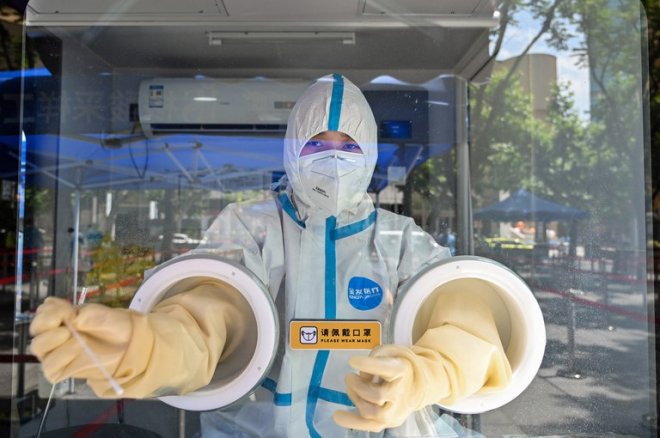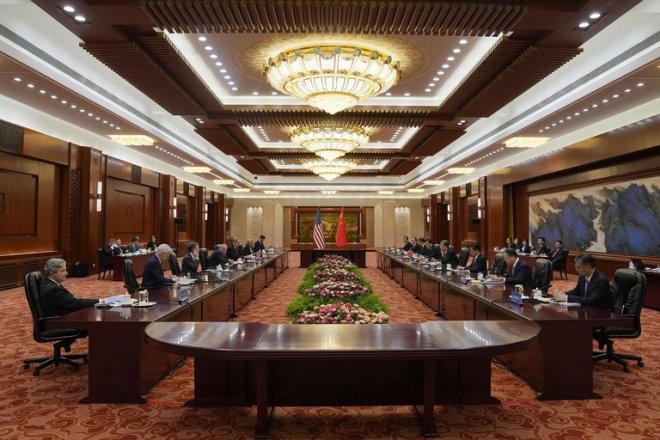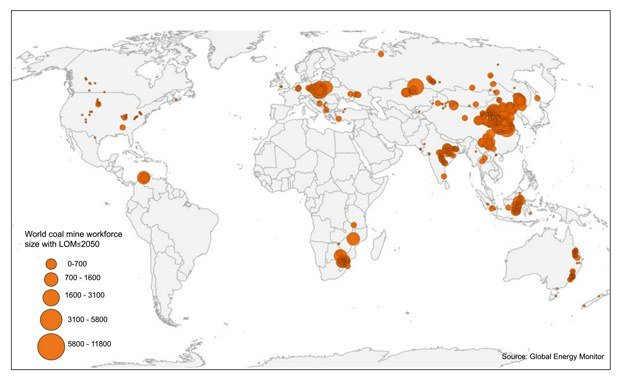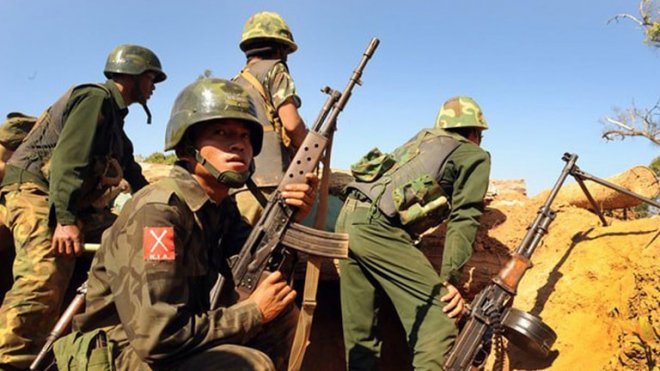Beijing says no bailouts for local governments after zero-COVID policy drains coffers
China"s finance ministry has warned cash-strapped local governments whose coffers have been depleted by the zero-COVID policy, that there won"t be any bailouts from Beijing.The ministry said in a reply to a top advisory body that it will deal with hidden outstanding local debt "in a law-based, market-oriented manner without resorting to central government bailouts," the state-backed China Daily newspaper reported.
Instead, local governments should realize that the risks of their borrowing will be borne "fairly" by debtors and creditors, the written reply to the Chinese People"s Political Consultative Conference said.
For example, a local government financing vehicle in the southwestern province of Guizhou, Zunyi Road and Bridge Construction, said at year-end that it will extend its repayment period for bank loans totaling 15.6 billion yuan (U.S.$2.3 billion) by 20 years.
Finance Minister Liu Kun said last week that the ministry is in the process of regulating such vehicles, commonly used by local governments to raise funds, by drawing up standard rules and regulations that ensure a "clear boundary between government and enterprise."
"We will uphold the principle of no central government bailouts,” Liu said in an exclusive interview with state broadcaster CCTV. “A baby should be cared for by its own family."
 Economist Cheng Xiaonong says most local governments in China are showing a fiscal deficit after three years of footing the bill for the zero-COVID policy. Credit: AFP file photo
Economist Cheng Xiaonong says most local governments in China are showing a fiscal deficit after three years of footing the bill for the zero-COVID policy. Credit: AFP file photoHe said the ministry plans to drive local investment to boost local economic growth and fiscal revenue via local government special bonds, as well as direct cash handouts to poorer areas.
‘A lot of bills will go unpaid’
U.S.-based economist Cheng Xiaonong said pretty much all local governments across China are showing a fiscal deficit after three years of footing the bill for the zero-COVID policy on the ground.
"The central government is forcing local governments to solve their own financial problems, but the local governments can also force the central government"s hand too," Cheng told Radio Free Asia. "If they have no money, they"ll lie down on the job."
"A lot of bills will go unpaid, like teachers" salaries and social security payments, which will force the central government to act to avoid leaving [civil servants] working with no pay."
Recent media reports said Shanghai"s fiscal deficit is among the smallest in the country, while Sichuan, Henan, Guangdong, Hunan and Yunnan provinces are all showing deficits of more than 280 billion yuan each.
The finance ministry issued 750 billion yuan (U.S.$110 billion) in special treasury bonds last month.
"Special treasury bonds are mainly used for economic reforms and for responding to major emergencies; they are not included in the deficit calculations, but counted as part of debt balance management," the ruling Chinese Communist Party"s official newspaper, the People"s Daily, reported at the time.
Just a stop-gap
Taiwan National Defense Security Research Institute researcher Lin Ya-ling said the issuance wouldn"t even begin to plug the massive fiscal deficit China is currently facing.
"That 750 billion yuan isn"t going to solve the problems of most places -- it was just an emergency stop-gap," Lin said.
She said the proceeds of government bonds ostensibly issued to fund major infrastructure projects typically also go to debt management instead.
"In the future, pressures from debt maturity will only increase as local governments seek to restructure repayments over a longer period of time," Lin said. "Local officials don"t really need to worry about the debt problems that will be faced by their successors, as long as they can resolve their immediate issues."
 "The biggest question for China"s economic performance over the next three years isn"t whether the economy will grow or not, but whether the banks and financial institutions will survive," says economist Cheng Xiaonong. Shanghai’s Lujiazui financial district is seen in this file photo. Credit: Reuters
"The biggest question for China"s economic performance over the next three years isn"t whether the economy will grow or not, but whether the banks and financial institutions will survive," says economist Cheng Xiaonong. Shanghai’s Lujiazui financial district is seen in this file photo. Credit: ReutersBloomberg has also reported that local governments will likely face a maturity "wall" in the coming years, as earlier bonds come due at the same time.
Lin said she doesn"t believe the central government will allow local governments to go bankrupt, because of the potential for widespread social unrest.
"Some local governments are [already] requiring civil servants to pay back the bonuses already paid to them, which will inevitably cause ill-feeling among local officials, or are adding various types of fines, which will fuel public resentment," she said.
Will the banks survive?
Analysts said local governments and the central government are engaged in a game of tug of war with financial risk.
"The central government is saying it can"t fill these holes for [local government], because if it does, they will only be bigger next year, and they will all start relying on [Beijing] like a breastfeeding infant," Cheng said. "That would make the central government collapse."
He said Beijing is negotiating its way between high inflation on the one hand and a financial crisis on the other.
"The biggest question for China"s economic performance over the next three years isn"t whether the economy will grow or not, but whether the banks and financial institutions will survive," Cheng said.
China"s outstanding government debt is currently below 60 percent of its GDP, which is lower than the global general debt-to-GDP ratio, Liu Kun told Xinhua.
Economist Li Hengqing said government coffers have been drained by President Xi Jinping"s favored zero-COVID policy and by the allocation of military funding for an invasion of democratic Taiwan.
"The medical part of the social security budget has been almost totally used up by the fight against COVID-19, to the tune of more than 10 trillion yuan," Li said. "All of the money used to organize manpower and material resources for the zero-COVID restrictions came entirely from local governments; it wasn"t funding sent by the central government."
"The only budget they haven"t and won"t touch is the revenue from tariffs ... because this gets spent on the military budget and a portion on the education budget," he said. "They"ve spent everything apart from a portion of the military budget that is set aside for attacking Taiwan."
Playing a game
Stone Group founder Wan Runnan said the government will always break market rules if it believes it can stave off social instability.
"China is totally playing ... a financial game here, with unlimited [loan] extensions and the unlimited printing of money [by issuing bonds], and the consequences will be borne by ordinary people," Wan said.
"Zunyi Bridge and Road should have gone bankrupt long ago ... but the government will just extend unlimited credit and extend repayments indefinitely," he said. "The government is using its power to deal with bankruptcy."
"It"s not trying to protect any particular enterprise, but its own grip on power," Wan said.
U.S.-based political analyst Wang Juntao agreed.
"Xi knows all of China"s current problems ... but he can"t admit he made a political error, so he can only seek solutions in technical steps," Wang said. "These debt [restructuring] arrangements are first of all delaying tactics to build public confidence."
"Under his leadership, China"s economy will continue to deteriorate."
Translated by Luisetta Mudie. Edited by Malcolm Foster.
[圖擷取自網路,如有疑問請私訊]
|
本篇 |
不想錯過? 請追蹤FB專頁! |
| 喜歡這篇嗎?快分享吧! |
相關文章
AsianNewsCast























